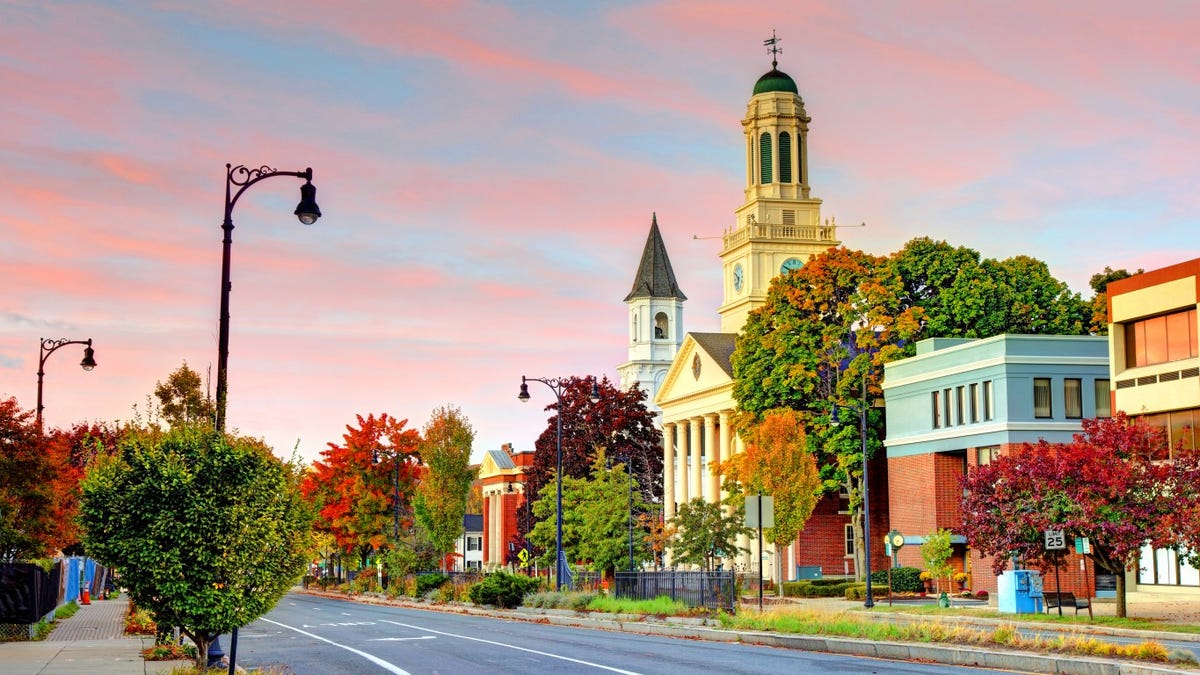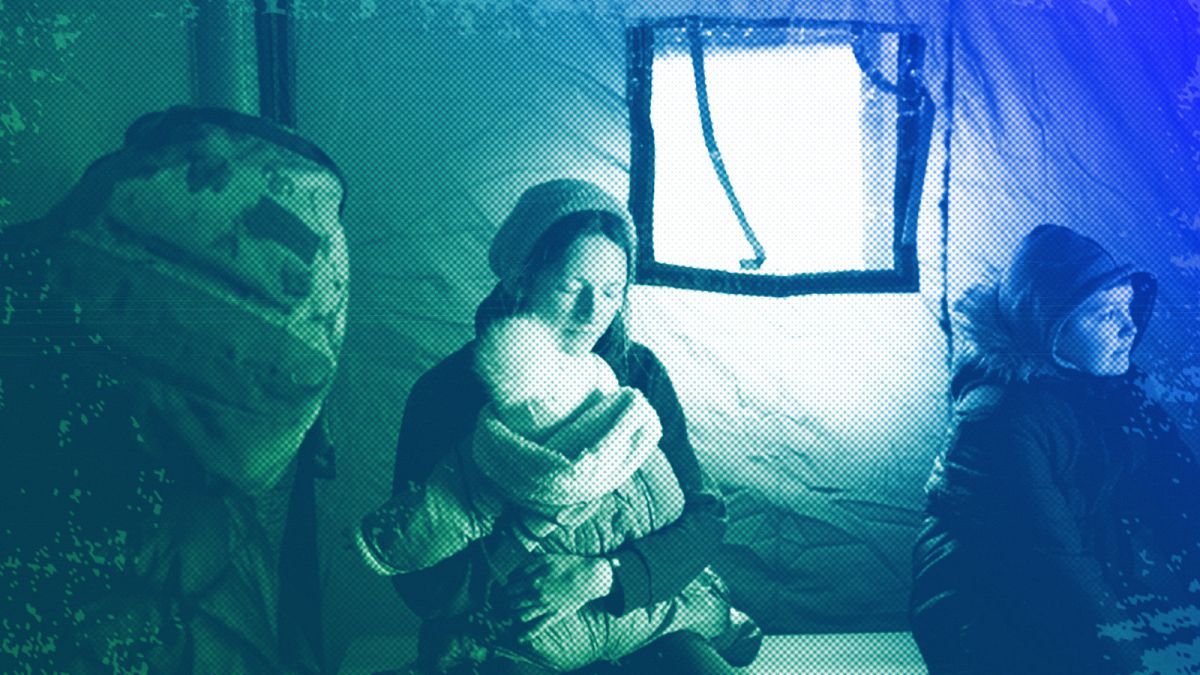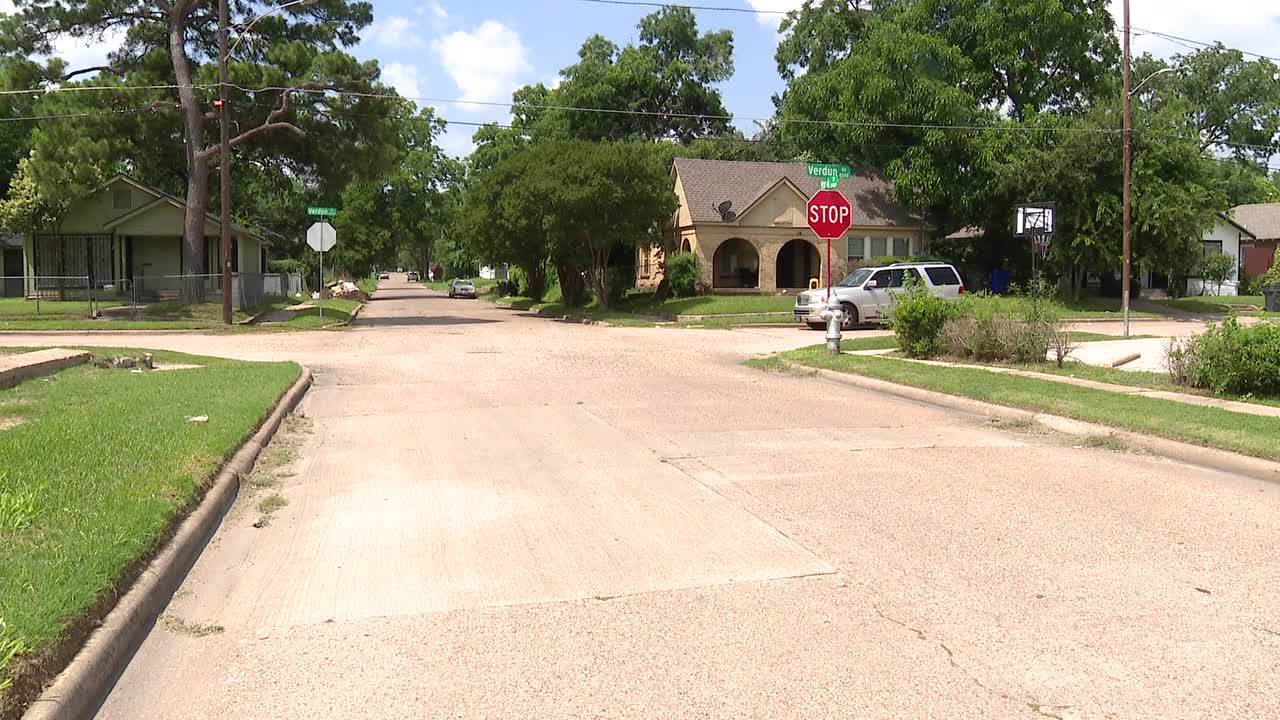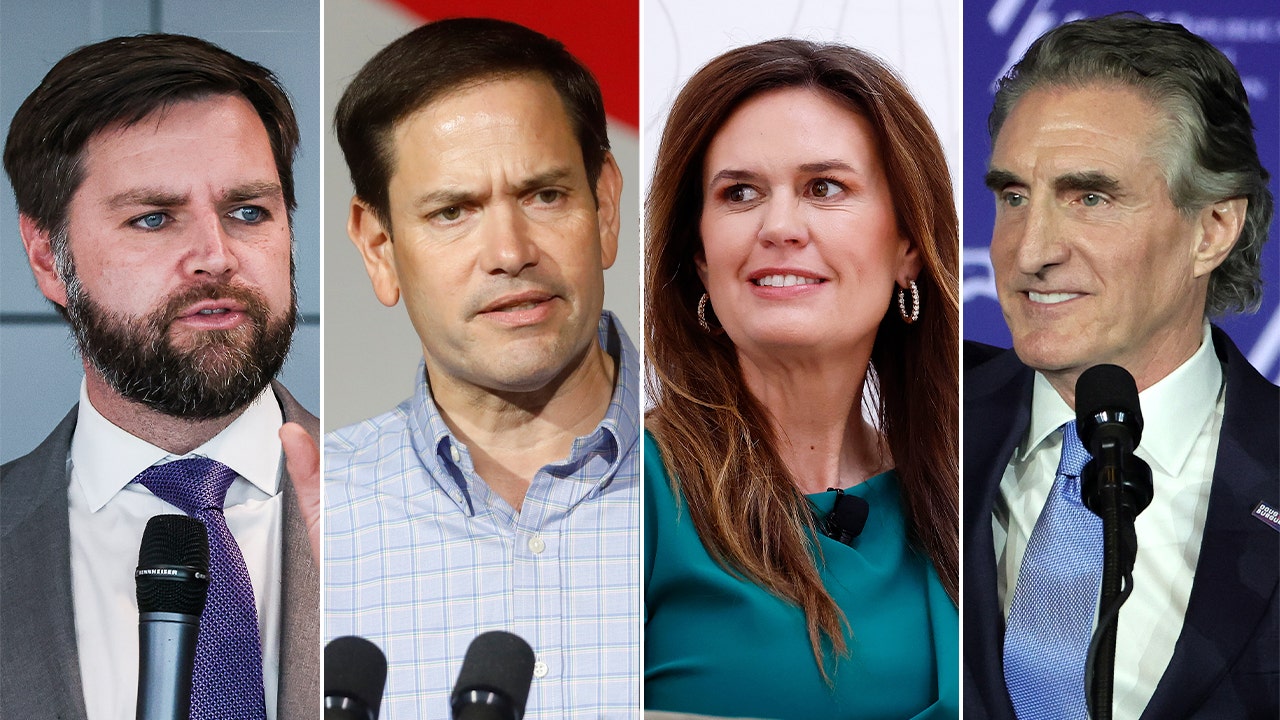World
Brussels sounds alarm about EU’s rapidly ageing population
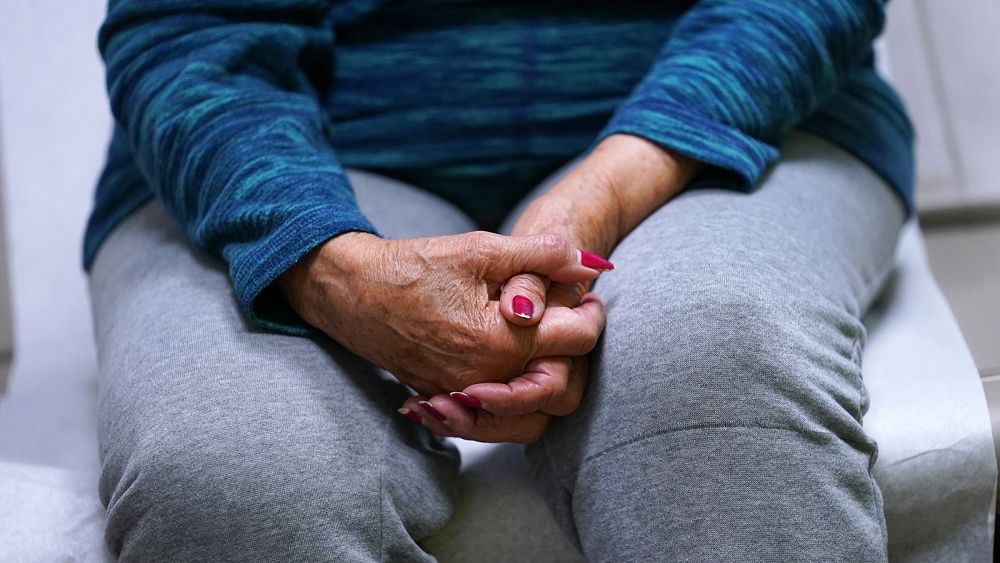
The European Union’s rapidly ageing population threatens to undermine the bloc’s competitiveness, exacerbate labour shortages, inflate public budgets and deepen regional inequalities.
These are some of the disquieting findings from a new report on demographic change released by the European Commission on Wednesday, which paints an alarming picture of the profound societal and economic transformation triggered by a shrinking workforce.
In short, the EU is getting too old too fast.
“Each member state is dealing with its own challenges,” said Dubravka Šuica, the Commission’s vice president in charge of democracy and demography.
“In the Netherlands, housing and population density are a key challenge, while in some regions of Spain, it is population decline. In Italy, the key challenge is declining birth rates and an ageing population. Greece is the member state with the fastest ageing population. Croatia struggles with brain drain of younger persons.”
According to the report, the EU’s population, which was slightly over 448 million people earlier this year, is projected to reach its peak around 2026 and then gradually decrease, losing 57.4 million working-age people by 2100. More worryingly, the bloc’s dependency ratio — the ratio of the number of elderly people compared to the number of people of working age — will surge from 33% today to 60% by the end of the century.
The drastic shift in the demographic pyramid will upend the labour market, with widespread shortages that could inhibit growth, productivity and innovation rates, and therefore accelerate loss of competitiveness vis-à-vis other major economies.
A dwindling workforce will inevitably reduce revenue for state coffers while piling additional pressure on public budgets to spend more on healthcare and pensions, an explosive combination that could divert attention away from the much-needed investments in renewable energy and cutting-edge technologies.
This, in return, will undercut social cohesion, Šuica said, and “in the end, the trust in democratic institutions and processes in Europe.”
Before the damage becomes irreversible, the Commission recommends member states take decisive action, such as closing the gender pay gap, improving work-life balance, offering tax benefits, reducing childcare costs, and making it easier for young people to access quality jobs and affordable housing earlier in their adult lives.
Brussels also says it is “crucial to empower older workers to remain active for longer” through upskilling programmes and flexible working hours, and urges businesses to overcome “preconceived notions and stereotypes” about the elderly.
“Longer lives create new opportunities and usher in a shift from an ageing society to a longevity society,” Šuica said, calling on countries to tap into the new economic opportunities created by the so-called “silver economy.”
In another recommendation, the report calls for “managed legal migration” to fill the surging number of job vacancies, which are already at record highs.
The bloc, which is in the midst of a hard-fought push to reform its asylum policy, received last year 3 million migrant workers via legal pathways compared to 300,000 who arrived through irregular means.
During the presentation, Šuica underlined several times that, while legal migration was a valuable option to address the demographic challenge, it was not the only one, a clarification that appeared designed to avoid the wrath of hard-right governments that have espoused pro-natality policies in a bid to boost the birth rate of local population without relying on migration flows.
“We are 27 democracies,” Šuica said. “It’s a different situation and this is the reason why we say that there is no one size fits all.”

World
‘SNL’ Cold Open Riffs on Trump Trial and His VP Picks

The 49th season finale of “Saturday Night Live” opened with James Austin Johnson as Donald Trump speaking at the barricades of a Manhattan courthouse, in a nod to Trump’s ongoing legal woes amid his presidential campaign.
During the sketch, Johnson as Trump spoke about his “weird and depressing” state at the courthouse, saying, “I don’t like being in court because they say very mean things about me as I’m trying to sleep.” (It was reported that Trump fell asleep in court during proceedings.) He goes on to say, “Now that my defense is supposed to begin on Monday, I would love to testify; I’m not afraid to testify at all, I’m just not going to out of fear.”
He continues to say how he doesn’t want to go back to the White House, “But it appears people want to send me there.” Johnson’s Trump pokes fun at Trump’s rigged election claims, too. “For me, it’s much better for me to not win and say it was rigged.”
Making fun of Trump’s sexist comments about women (and how he once said Heidi Klum is “no longer a 10”), Johnson, as Trump says of a juror at his trial, “They call her juror 9, but to me, she’s like a six, baby.”
Johnson’s Trump then introduced three of his potential VP candidates. “We love to say ‘VP’, like ‘Veep’ with Elaine from ‘Seinfeld.’ She can’t dance!” He says he won’t announce his VP just yet. “In many ways, it will be determined by the winner of the Jake Paul-Mike Tyson fight.” Trump says he’s invited a few people from “my short bus––I mean my shortlist.”
He brings out South Carolina Governor Tim Scott (played by Devon Walker). “I’m here to help Trump win the Black vote,” he says. Trump adds, “I’m more popular than you among the Blacks, which is really saying something.” Walker, as Scott says, “Black people have called my support humiliating, but trust me, I am my own man!”
Trump then brings out South Dakota Governor Kristi Noem (played by Heidi Gardner), wearing a red MAGA hat, holding a stuffed dog, and pointing a fake gun at the dog (a reference to her shooting a dog). “She shot a dog, which you really can’t do…but on the other hand, she shot a dog, which is pretty awesome.” Gardner, as Noem chimes in and says, “I kill goats, too!”
Finally, he wheels out his final VP pick, “The late great Hannibal Lecter!” Trump says, as Mikey Day as Hannibal Lecter is wheeled out in an orange jumpsuit and wearing the famous mask. “I think he’d really scare everybody at the border. “Get him out of here, he’s giving me Pence vibes,” says Trump, as Hannibal Lecter is then wheeled away.
Trump says it’s going to be “the summer of Trump. You’re gonna get that Trump espresso,” he sings in a reference to a Sabrina Carpenter song. Johnson, as Trump says he’ll be selling more Trump Bibles as well, along with a “Trump Torah.”
Trump finishes the cold open shouting, “In the words of my mentor, the late great Hannibal Lecter, “Live from New York, it’s Saturday night!”
This week’s “SNL” host is actor Jake Gyllenhaal, and Sabrina Carpenter stars as the week’s musical guest.
Watch the sketch below:
World
Blue flash caught in night sky over Spain, Portugal lights up social media
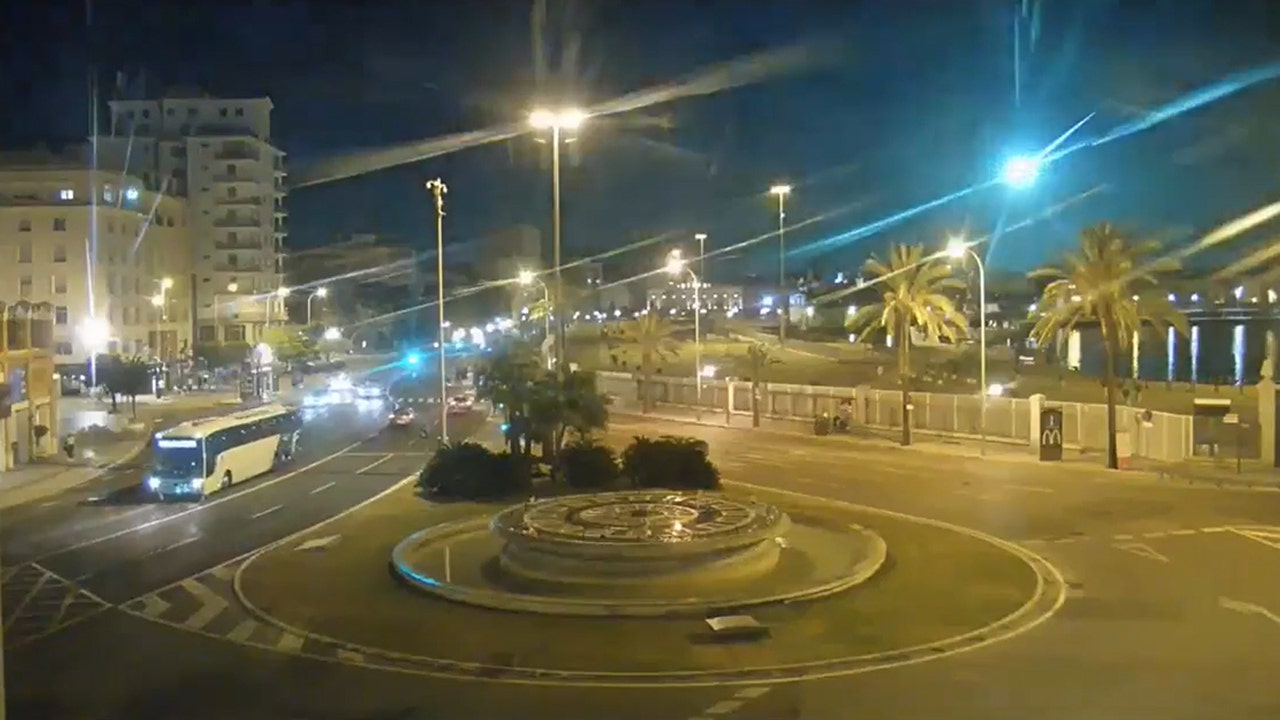
It’s a bird… it’s a plane… it’s a blue meteor? Fireball? Piece of a comet?
Whatever it was, it lit up the night sky for millions of people early Sunday morning in Spain and Portugal. Social media users took stunning pictures and videos for all to revel in the natural science phenomenon.
The spectacular sight crossed the night sky at 12:46 a.m., according to CCTV footage released by the mayor’s office in Cádiz.
The European Space Agency (ESA) Operations says the “blue meteor” everyone is referring to was actually “a small piece of a comet” that flew over the European countries at the speed of 45 kilometers a second, which is equivalent to almost 28 miles.
MERGER OF MASSIVE BLACK HOLES FROM EARLY UNIVERSE UNCOVERED BY WEBB TELESCOPE, SCIENTISTS SAY
It burned up over the Atlantic Ocean at an altitude of 60 kilometers, or more than 37 miles above the surface.
“The likelihood of any meteorites being found is very low,” ESA Operations tweeted after the agency’s Planetary Defence Office analyzed the size and trajectory of the object.
SCIENTISTS DISCOVER LARGE, ‘COTTON CANDY-LIKE’ PLANET WITH UNUSUALLY LOW DENSITY
The night sky in Cadiz, Spain, prior to the fireball’s appearance. (Ayuntamiento de Cadiz via Storyful)
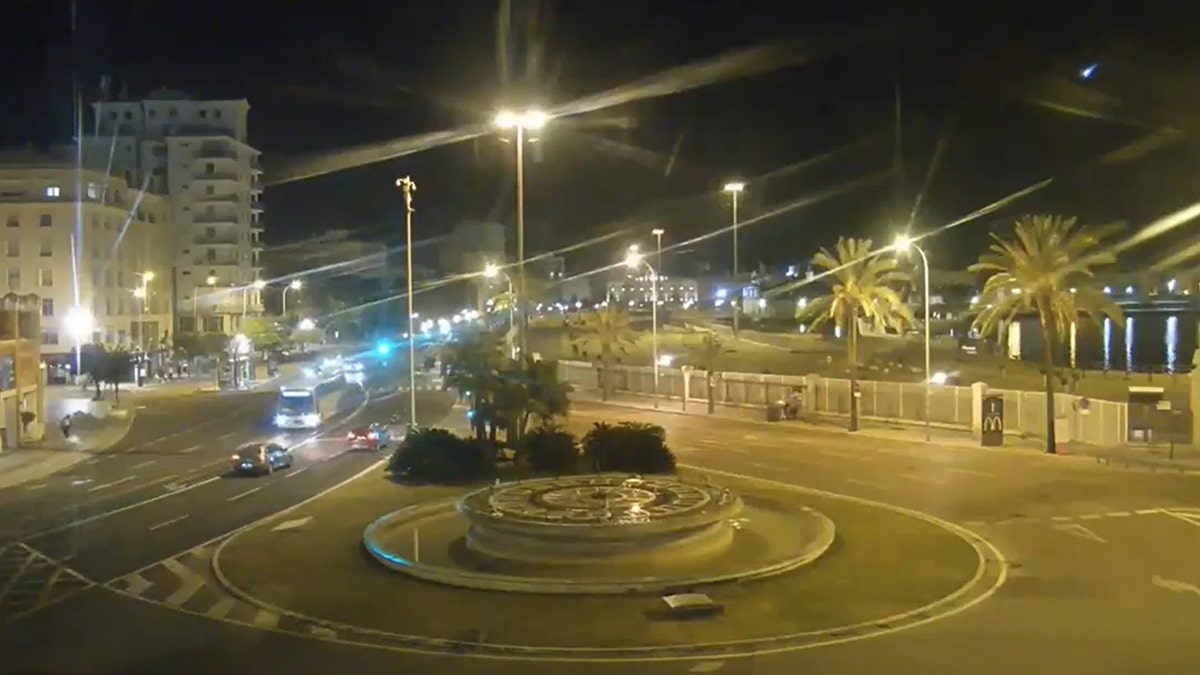
The moment the blue fireball first appeared on the camera rolling at the Cadiz mayor’s office. (Ayuntamiento de Cadiz via Storyful)
National Aeronautics and Space Administration explains the color was likely due to magnesium, and that “meteor color depends on whether the metal atom emissions or the air plasma emissions dominate.”
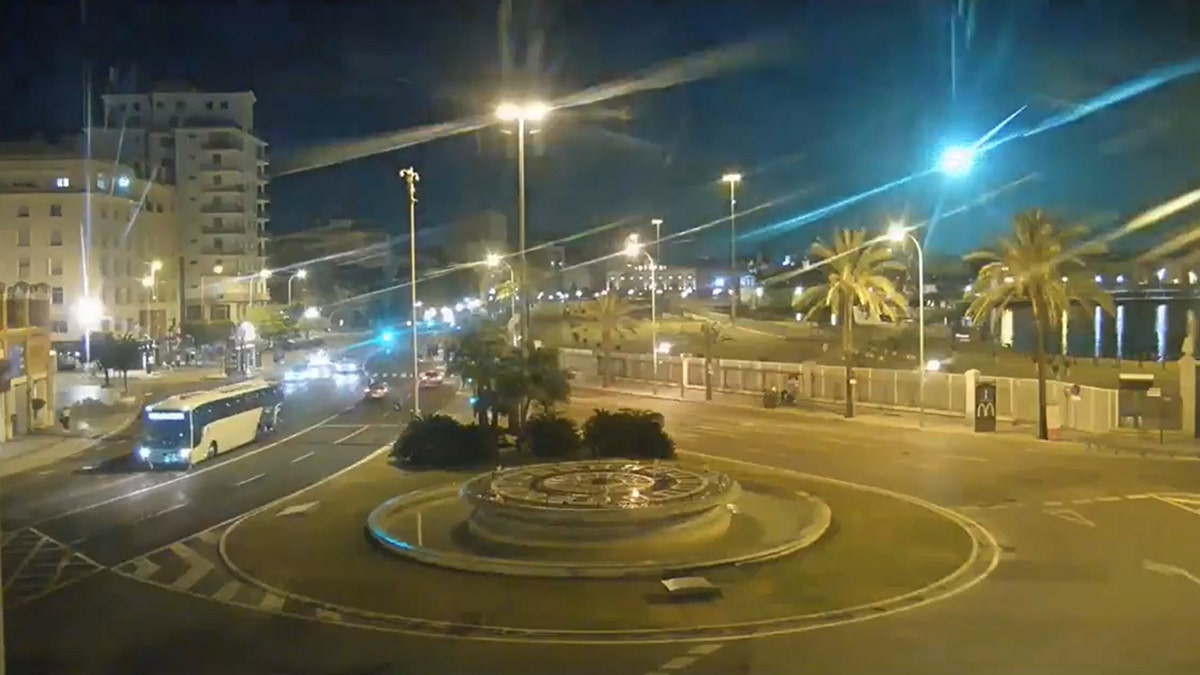
The blue fireball lit up Spain’s sky early in the morning May 19, 2024. (Ayuntamiento de Cadiz via Storyful)
“Short-period comets, also known as periodic comets, originate from a disk-shaped band of icy objects known as the Kuiper Belt beyond Neptune’s orbit, with gravitational interactions with the outer planets dragging these bodies inward, where they become active comets,” Space.com states.
Many on social media referred to what they witnessed as a “once in a lifetime sight,” according to news.com.au, with at least one joking, “That’s no meteor, that’s Optimus Prime.”
Fox News’ Mitch Picasso contributed to this report.
World
How is Azerbaijan involved with France and New Caledonia?
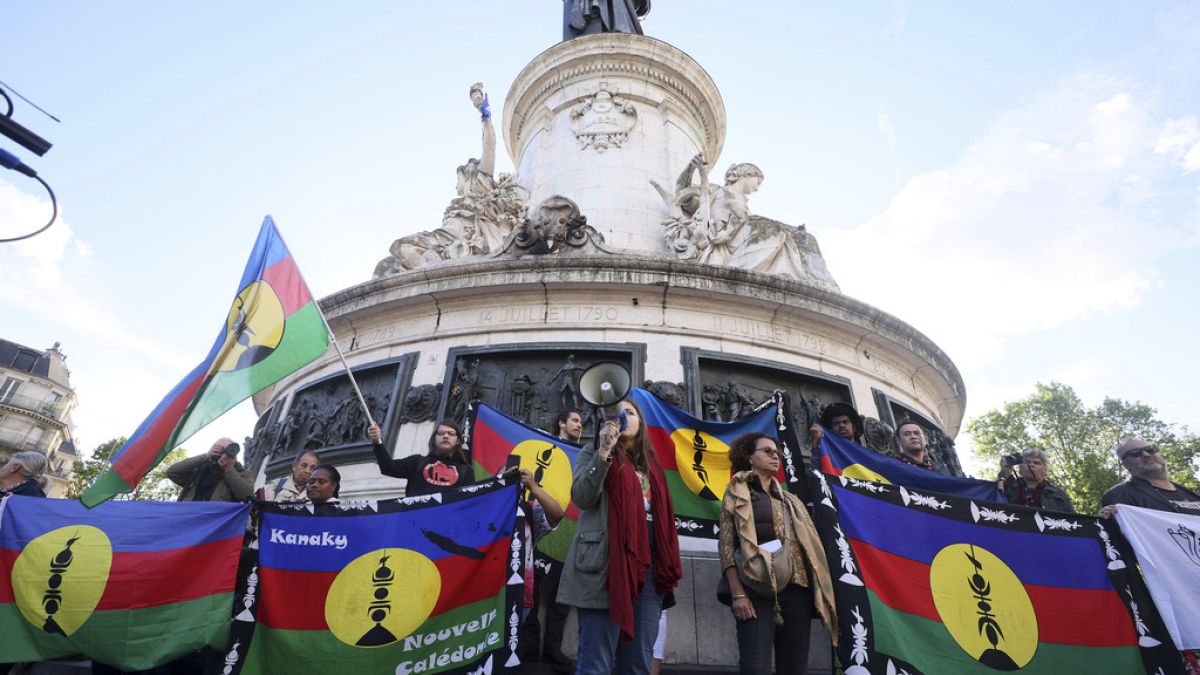
France has accused Azerbaijan of meddling in its Pacific territory, New Caledonia, by supporting independence movements and spreading disinformation, amid broader geopolitical tensions.
France has accused Azerbaijan of meddling in its Pacific archipelago territory of New Caledonia.
Despite the vast geographical and cultural distance between the Caspian state and the French Pacific territory, this claim is rooted in a complex web of historical, political, and diplomatic tensions.
The Crisis in New Caledonia
New Caledonia, located between Australia and Fiji, is a French territory with a history of striving for independence.
The recent unrest in New Caledonia was ignited by a new electoral law perceived by the indigenous Kanak population as discriminatory.
This law allows people who have lived in New Caledonia for at least ten years the right to vote in local elections, which pro-independence supporters argue will dilute the Kanak vote.
France’s Accusations
France’s Interior Minister, Gérald Darmanin, has publicly stated that Azerbaijan, along with China and Russia, is interfering in New Caledonia’s internal matters. “This isn’t a fantasy. It’s a reality,” Darmanin told the France 2 TV channel, emphasizing the seriousness of the allegations.
The French government points to the sudden appearance of Azerbaijani flags at Kanak independence protests and the backing of separatists by groups linked to Baku.
Azerbaijan has vehemently denied any involvement, calling the accusations baseless. “We completely reject the baseless accusations,” said Ayhan Hajizadeh, a spokesperson for Azerbaijan’s Foreign Ministry. “We refute any connection between the leaders of the struggle for freedom in Caledonia and Azerbaijan.”
A significant element in this story is the Baku Initiative Group, established during a conference in July 2023 in Azerbaijan. This group, which includes participants from various French territories seeking independence, aims to support anti-colonial movements against France.
The group has expressed solidarity with the Kanak people and condemned the recent electoral reforms in New Caledonia. “We stand in solidarity with our Kanak friends and support their fair struggle,” the Baku Initiative Group stated.
Why are France and Azerbaijan clashing diplomatically?
The tensions between France and Azerbaijan extend beyond New Caledonia. France is a traditional ally of Armenia, Azerbaijan’s historical rival, particularly regarding the contentious Nagorno-Karabakh region.
Following the 2020 war and a subsequent 2023 offensive by Azerbaijan to reclaim control of Nagorno-Karabakh, France has openly supported Armenia.
This support includes defence agreements and military equipment supplies, fuelling further animosity from Azerbaijan. Darmanin referred to Azerbaijan as a “dictatorship,” highlighting the deep-seated distrust.
France has also accused Azerbaijan of engaging in disinformation campaigns to destabilise its territories. Pro-Azerbaijani social media accounts have been linked to the spread of misleading content about the French police’s actions in New Caledonia.
A French government source mentioned a “pretty massive campaign, with around 4,000 posts generated by (these) accounts,” aimed at inciting violence and mistrust.
This follows France recalling its ambassador to Azerbaijan in April, with President Macron expressing regret for Azerbaijan’s actions, along with his hope that the Azerbaijanis would clarify their intentions.
Why New Caledonia?
While Azerbaijan’s direct interest in New Caledonia might seem far-fetched, it fits into a broader strategy of challenging the French colonial legacy and supporting separatist movements.
By aligning with anti-colonial sentiments, Azerbaijan aims to position itself as a champion of liberation movements, simultaneously discrediting France on the international stage.
This effort is seen as part of a broader geopolitical manoeuvering, including Azerbaijan’s efforts to tarnish France’s image, as noted by its alleged disinformation campaign against France’s capability to host the Olympic Games.
The heightened tensions have had further repercussions. The French Sports Minister cancelled the Olympic flame’s journey through New Caledonia, for security reasons, but also an action that reflects the severity of the unrest and the accusations of foreign interference.
The involvement of Azerbaijan in New Caledonia’s unrest is a multifaceted issue rooted in broader geopolitical rivalries and historical grievances.
For Azerbaijan, supporting independence movements in French territories is a way to strike back at France for its support of Armenia and to bolster its own international standing.
For France, these actions represent a direct challenge to its sovereignty and stability in its overseas territories, prompting strong accusations and heightened tensions between Paris and Baku.
-

 World1 week ago
World1 week agoUkraine’s Zelenskyy fires head of state guard over assassination plot
-

 Politics1 week ago
Politics1 week agoFox News Politics: No calm after the Stormy
-

 World1 week ago
World1 week agoIndia Lok Sabha election 2024 Phase 4: Who votes and what’s at stake?
-

 News1 week ago
News1 week agoSkeletal remains found almost 40 years ago identified as woman who disappeared in 1968
-

 Politics1 week ago
Politics1 week agoUS Border Patrol agents come under fire in 'use of force' while working southern border
-

 Politics1 week ago
Politics1 week agoTales from the trail: The blue states Trump eyes to turn red in November
-

 World1 week ago
World1 week agoBorrell: Spain, Ireland and others could recognise Palestine on 21 May
-

 World1 week ago
World1 week agoCatalans vote in crucial regional election for the separatist movement


